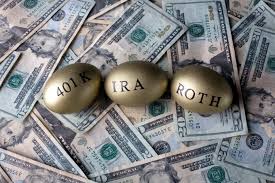We don’t often have the opportunity for bonafide windfalls. EIP1 and EIP2 came at a time when many were laid off and needed that money to live on. The economy seems to be back on track, so people may be experiencing some truly unexpected income. How we spend the stimulus will vary from person to person. Here are 5 things I would coach people to do (in order) with their unexpected income.

Knowing what we plan to do with the stimulus money is akin to having a budget. With the budget, we tell our money what to do at the beginning of each month. With a plan for windfalls, we avoid letting it burn a hole in our checkbook.
1. Chip away at debts
For people with consumer debt, paying off these high interest credit cards always makes sense. It’s not uncommon to use a credit card to get through a temporary economic downturn. Or maybe you’re ready to vanquish that 24% Visa card balance remaining from last year’s vacation. In any event, it is always wise to avoid consumer debt.
2. Augment the rainy day fund.
So you’re debt-free? Let’s move along to Baby Step 3. I would suggest creating some cushion between you and life. Most coaches agree that having 3-6 months’ worth of expenses in a money market is ideal. A full emergency fund establishes an unbelievable calm. And emergencies don’t seem to occur when you have a full emergency fund. And if it does, it’s more of an inconvenience than a catastrophe.
3. Start (or pad) retirement accounts.

You could use the stimulus check as seed capital for your nest egg. For example, you might consider starting a Roth IRA to supplement your employer-matched 401(k).
Or you may consider padding an already existing nest egg account.
4. Reward yourself.
Let’s say you have no consumer debt, your emergency fund is all set with 6 months of expenses, and your retirement accounts are cruising on auto-pilot. In this case, you might reward the family with a swimming pool, a new barbeque, or even a hot tub. Whatever the case, if the hay is in the barn, feel free to splurge on something nice.
5. Take a course.
Have you ever wanted to learn how to create a blog? How about a podcast or YouTube channel? You could learn how to create an e-commerce website. Or you could just add some books to your home library. Investing in yourself is never a bad idea.
Whatever you do…
Try to avoid going all spendthrift with windfall money (unless you can truly afford to). Hitting singles with sensible personal finance moves is always better than swinging for the fences with things like gambling it away at a casino or wasting it on scratch-off lottery tickets.
As Always…
Thanks for reading! I hope this information provides food for thought. Remember that I am not a certified financial planner, a certified public accountant, a licensed real estate agent, etc. My content is for educational purposes. I am a math educator who happens to have a finance degree. Like they say, never take financial advice from a math teacher! (Do they really say that?)
But you should spend less than you earn, invest the difference, and stay out of debt!
I would so appreciate your sharing my content with anyone you feel could benefit. And if you would like a free exploratory conversation or just want to shoot the breeze about personal finances, call me and leave a message or send a text to 570-731-0425.